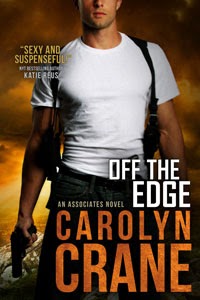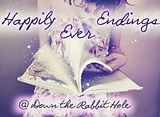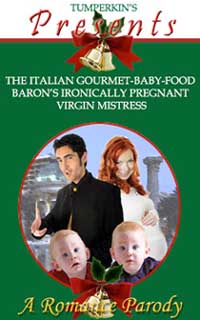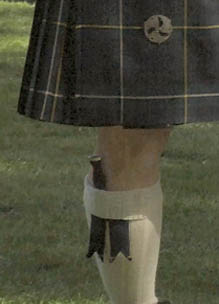 First, thank goodness I am doing a post and getting George Clooney off the top of my blog. It is too much to see him every time I open this thing up. He is so unnaturally handsome in that picture, it is disturbing to my mind.
First, thank goodness I am doing a post and getting George Clooney off the top of my blog. It is too much to see him every time I open this thing up. He is so unnaturally handsome in that picture, it is disturbing to my mind.Honestly, every time I see that photo, I think it interferes with the electrical charges in my brain and I go into a little bit of a daze .
Okay. I have so many books I have finished to talk about, but I just started Silent in the Grave, and I am loving it. Especially the writing style and voice, which is so wonderful. Now, to get nerdy in a reader/writer way, I'm digging lines like these:
The vicar quickened his pace, cracking through the last prayer.The internal music of that sentence, wow! I could say it all day. And also, it feels wonderfully English. Especially the word cracking. The author Deanna Raybourn is not English, but the book is set in Regency England. Elsewhere, a cousin is described as "barking mad," a phrase that also feels old England (at least to my American ears), and which I very much plan to use someday. And:
Father was entirely capable of wittering on about Shakespeare until doomsday.
Question for those across the pond: Just out of curiosity, are 'cracking' and 'wittering' as verbs commonly or even uncommonly used today in the U.K.? I suppose there's 'get cracking,' but that use doesn't feel the same. How about 'barking' as a word that might modify a word like mad?
Could barking ever be used to modify a different word, or does it pretty much only go with mad? If your answer is yes, can you supply examples?
And a sort of question: I am starting to dimly become aware, from my interview with my first friend below, as well as looking at the fabulous work of my CP, who is Scottish, that genre books are really cleansed of non-American speech. How tragic. But I suppose they leave the words alone when it comes to Regency. Or are those cleansed, too? What is the deal? Is this an issue and I'm just late to the party?
And a sort of question: I am starting to dimly become aware, from my interview with my first friend below, as well as looking at the fabulous work of my CP, who is Scottish, that genre books are really cleansed of non-American speech. How tragic. But I suppose they leave the words alone when it comes to Regency. Or are those cleansed, too? What is the deal? Is this an issue and I'm just late to the party?
































.jpg)












.png)











































































































13 comments:
I've never heard wittering or cracking, but I love barking mad. And I SO appreciate authors with a gift for words, as I struggle just to be coherent.
This was a really great book (and the 2nd one is, too!)
I actually listened to the audiobook, and the narrator was so awful that it took me a bit to realize it was her and not the story. I read, book 2. ;-)
There's a slyness in DR's storytelling that makes these books so much fun. I'l really looking forward to book 3, coming out next month.
I read this on my cell phone this morning and I've been pondering..because some people DO use words like barking and wittering and cracking. but it's usually intentional and funny. So is that her intent?
Slyness...I like it, actually.
Jill~Me too on the struggle for coherence. And I'm out of coffee.
Jill: Barking mad just says it, doesn't it?
Renee: Yes - slyness for sure!
LB: I guess, I can see using it in print more than speech.
Oh, this sounds good. But I'm going to take this book off my sidebar as a book I'm currently reading later. It seems a bit weird that it often looks like we're reading (older) books at the same time. I'll get back to it in a few weeks/months.
I'm not stalking, I swear. LOL
It's funny how we read the same ones. I like it, though. ! I think you'll like this one.
Being one of those from over the pond, I can tell you that we do use the phrase 'barking mad'. we don't use barking in any other context except that phrase.
We also use the word 'cracking' as an adjective qualifier to mean 'super' or 'spiffing' or 'great'. Have you seen any of the Nick Park Wallace and Gromit animations? Wallace often tells Gromit that he makes 'cracking good tea'.
I also often tell my kids to stop 'wittering' on at me when they are nagging me to death about something or going over the same thing over and over again.
1. Did you see 'From Dusk till Dawn'? Horrendously bad movie, but George looked amazingly good so I watched to the bitter end.
2. 'Silent in the Grave' - love, love, loved it even though I guessed the murderer quickly, and even though I would never have picked it up on title alone. Delving into Book 2 ASAP. *happy sigh*
Yes, all the words you've mentioned are in common usage. It's common too to just use "barking" rather than "barking mad" to mean mad (as in mad/insane - not in the American mad/angry sense). Barking wouldn't be used for anything else.
For me, the use of obvious Americanisms in a British-set historical novel does bother me and I think it bothers a lot of other readers so the best of them will have virtually none. The difficulty is that they sound so very out of place as you're reading that - for me - it pulls me out of the reading experience, like a little voice in my ear hissing "someone wrote this!".
Interestingly, a lot of the people writing British-set historicals - in fact most of the best ones - are American so I'll often see quite tiny clues that slip through, like characters using "I guess" instead of "I suppose" or "I'll go get Anne" instead of "I'll go and get Anne".
A question I'd ask you is - as an American - do you 'hear' the examples I've given above as having on the one hand an 'American sound' and on the other a 'British sound'? To me, they're distinctly different but then the media/music/cinema etc. is so dominated by American culture that I'm quite familiar with American idioms. I'm not sure how much British media you get in comparison?
Here in dear old Oz, we have pilfered a hell of a lot of sayings from the motherland. As such, 'barking mad', 'cracking' and 'wittering' is used in everyday vernacular...well, maybe not wittering, though I have heard it before. Actually, I take that back - I do use 'wittering on about nothing' quite freqently - thank you, frustrating work collegues!
I agree with Tumperkin - it's definitely jarring to read of an 'Americanism' in an English-set novel. It will draw you right out of the novel and you will totally think - oh, that's right, this is a book I'm reading...huh, how about that?
Here in Oz, we get most of our British quota from the telly on channel 2, which is the ABC (Australian Broadcasting Corporation) a government sponsored channel. As such, it contains a lot of British content. A lot of kids shows are from the UK, so growing up we had gems like Danger Mouse, Press Gang, BananaMan, the Goodies, etc - all extremely British.
Wow, and now I think I'm waffling. Better stop before I bore the bejesus out of you all...and now I'm wondering if I've just used some totally Australian sayings...hmm...
Jenre, thanks for that clarification. After I asked that barking question, I was thinking, what else could it be used for anyway? it makes such a wonderful image - of somebody actually so mad they bark.
M: No, I didn't see that. Sounds like I ought to! I'm reading this on a rec, too. Couldn't be more pleased.
Tumperkin: How interesting. The examples you provide sound interchangeable to me. I mean, if somebody put a gun to my head and asked which was more a British phrase, I would choose correctly, but I wouldn't have known by myself one was obviously American...if not for the person with the gun to my head suggesting so. And we get very little British media. It get relegated to the corners of the spectrum. You almost have to seek it out. Certainly things break through: Dr. Who. Absolutely Fabulous was popular for a time. My husband actually hates BBC productions we order on Netflix. his palate has been sort of ruined by the fast pace and verisimilitude of American TV, and when British TV shows do go realistic, we sort of can't understand them. However, I know people who watched the Wire with subtitles. Music and film, however, make it across hugely!
Cass: Hey! Hi! I know you!!! Funny, our BBC content is on channel 2 as well, though there's not much of it. Now that you and T have said that, it adds a whole new dimension to my thinking about regency novels. And I know now that I read in ignorant bliss. However, not in ignorance of bejesus and waffling.
Funny, every time I see a pic of him I just go "yummmmm"!
Have you tried www.urbandictionary.com about those words? It's actually a surprisingly helpful site.
I've heard so many good things about this book...glad to hear that you are enjoying it as well!
Post a Comment